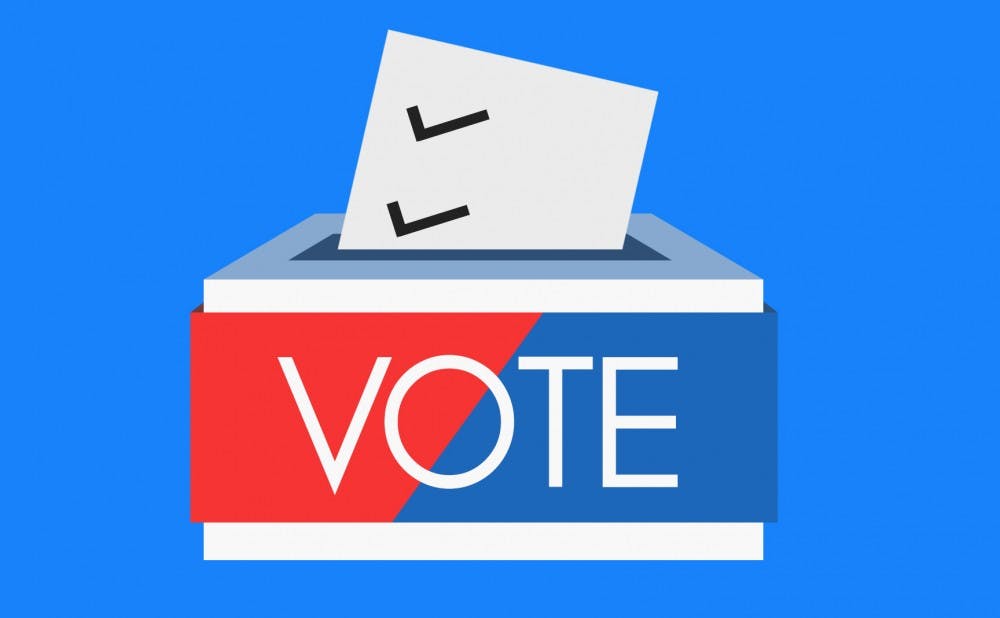A new voter ID law will require photo identification to cast a ballot in North Carolina.
Earlier drafts of the bill disallowed students at private colleges in the state—such as Duke—from using their college ID card to vote, but they were brought back into the bill with specified restraints.
“This [law] is a solution in search of a problem," said Fritz Mayer, public policy professor and director of the Center for Political Leadership, Innovation and Service. "There is no evidence whatsoever of in-person voter fraud by students. It’s not. It just doesn’t happen.”
The law was passed Dec. 19 by North Carolina's legislature when the Republican majority overrode Governor Roy Cooper's veto of the bill. The bill was raised in the aftermath of the November midterm election, when 55 percent of North Carolina voters passed a constitutional amendment that would require voters to present some form of state-approved photo identification prior to voting.
Acceptable forms of identification within the law, known as S.B. 824, include driver licenses, passports, military and veteran IDs, tribal enrollment cards, school IDs issued by public institutions and eligible private postsecondary institutions that meet the state requirements, state ID cards issued to non-drivers, state and municipal employee IDs and a new type of ID issued by local boards of election.
The lengthy stipulations for private institutions' identification cards aim to standardize the IDs. The requirements include that the equipment that produces the IDs is in a secure location, the cards contain an expiration date, misuse of the equipment that makes the cards would result in student disciplinary action or employee termination and that colleges provide copies of the standard IDs to the board of elections.
The law comes as an investigation continues into alleged voter fraud in North Carolina's ninth district, where Dan McCready, Trinity '00, was defeated by a slim margin. In the days since the bill became law, civil rights advocates have filed state and federal lawsuits to block the new law on the grounds that it discriminates against minority voters.
Mayer suggested that the law was “politically-calculated.”
“It’s hard not to conclude that the goal is to make it more difficult for some students to vote. And young people are more likely to vote Democratic,” Mayer said.
Senior Brian Buhr, president of the Duke University Union who was involved with the Duke Votes push during the midterms, said that Duke is likely to have the resources to create a new student ID that complies with the legislation. He said that the process would be led by administrators, and that the University Registrar would work with the North Carolina Board of Elections to verify compliance measures, which the Duke Card Office would implement.
Buhr pointed out that the digitalization of Duke student IDs may pose a challenge.
"As Duke students get used to just carrying their phone around, I don’t think the Board of Elections would allow us to use digital ID as a valid form of identification,” Buhr said. “So the challenge is that as Duke pushes towards these digital platforms, how do we encourage students to use their real IDs.”
Buhr said that the new law reflects a concerning trend in how candidates seek election victory.
“The larger implication is it shows that parties and candidates aren’t moving to try and get as many votes as possible and try and connect with their populace as much as possible,” Buhr said. “It’s going along the narrative that’s like, ‘oh, I don’t think I can get the majority so I’m going to restrict certain people’s voting ability so I can win.’”
Get The Chronicle straight to your inbox
Sign up for our weekly newsletter. Cancel at any time.

